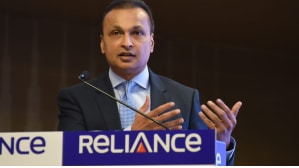As the dark side of artificial intelligence (AI) gradually comes into the picture, experts believe training of AI models is needed. AI supercomputers are specialised computing systems designed to handle the immense computational demands of artificial intelligence. Unlike traditional computers, these behemoths are built to tackle complex AI algorithms, deep learning models, and massive datasets. AI supercomputers are expected to be the engines propelling the entire field of AI forward. It is believed that their ability to crunch through massive datasets and perform complex calculations speedily has the potential to open doors for more AI developments. “AI supercomputers can help doctors discover new drugs, analyse medical images with incredible accuracy, and even personalise treatment plans for patients. It is believed that this can be the future of personalised medicine, and it’s happening right now. Furthermore, it can also transform the financial landscape with fraud detection, risk management, and algorithmic trading, among others,” Somdutta Singh, serial entrepreneur, founder and CEO, Assiduus Global Inc, LP angel investor and ex-member Niti Aayog, told FE-TransformX.
The supercomputing market
In 2021, revenue from the global supercomputer server market amounted to $6.26 billion, a slight drop from the $6.02 billion recorded in the previous year. In 2022, supercomputer revenues are set to rebound, rising to $7.73 billion, as per insights from Statista, a market research firm. Experts believe the rise of AI supercomputers can add to these numbers. The AI supercomputer market is projected to grow from $1.2 billion in 2023 and reach $ 3.3 billion by 2028, growing at a CAGR of 22.0% from 2023 to 2028, as per insights from Market and Markets, a market research platform.
Case in point, DeepMind’s AlphaFold2, powered by Google’s AI supercomputer, has reconstructed protein structure prediction, accelerating drug discovery and potentially leading to medical breakthroughs. Experts believe that Microsoft’s ‘Bonsai’ platform, powered by Azure supercomputers, helps optimise complex systems, such as energy grids and traffic management, leading to improved efficiency and sustainability. Additionally, Meta’s AI Research SuperCluster is expected to aim to develop personalised experiences in the metaverse, pushing the boundaries of virtual reality and human-computer interaction.
AI Supercomputers: sunny side up?
From what it is understood, AI supercomputers also offer avenues for upskilling and training, particularly in regional languages, which can empower workers to acquire new skills and remain relevant in the evolving job market. It is believed that the integration of AI supercomputers into blue-collar industries is expected to continue, albeit with evolving challenges and opportunities. “While automation may initially lead to job displacement, it also opens avenues for upskilling and reskilling the workforce, thereby enhancing employability and job prospects. Ultimately, leveraging AI supercomputers responsibly can drive innovation, enhance efficiency, and contribute to sustainable economic growth in India,” Moiz Arsiwala, co-founder and CTO, WorkIndia India,a recruitment platform, highlighted.
Industry experts believe that AI supercomputers have the potential to reduce the misuse of AI technology by implementing robust security measures, ethical guidelines, and stringent regulations. By promoting transparency, accountability, and education, stakeholders can foster responsible AI deployment and mitigate the risk of illegal activities such as data manipulation. This approach is believed to be essential to ensure the ethical and lawful use of AI technology and build trust among users and society at large. However, while the integration of AI supercomputers holds promise for improving productivity and competitiveness, it also raises concerns about job displacement and the ethical use of technology. “ With great power comes the responsibility to mitigate potential risks. Harnessing the capabilities of AI supercomputers can be a force for good, aiding in the prevention of misuse by implementing robust ethical frameworks and security measures. Striking a delicate balance is imperative to ensure these technological marvels are not exploited for malicious purposes such as data manipulation or unauthorised surveillance,” Vipin Vindal, CEO, Quarks Technosoft, a software and web application development company, concluded.









